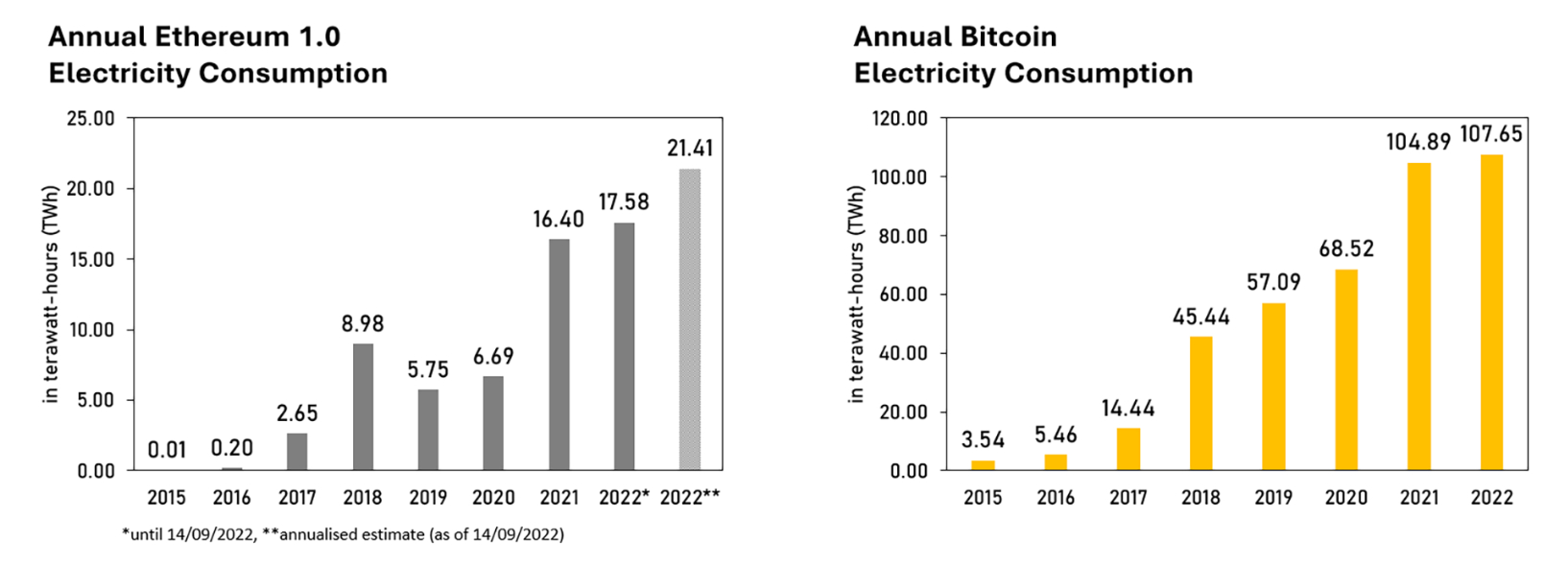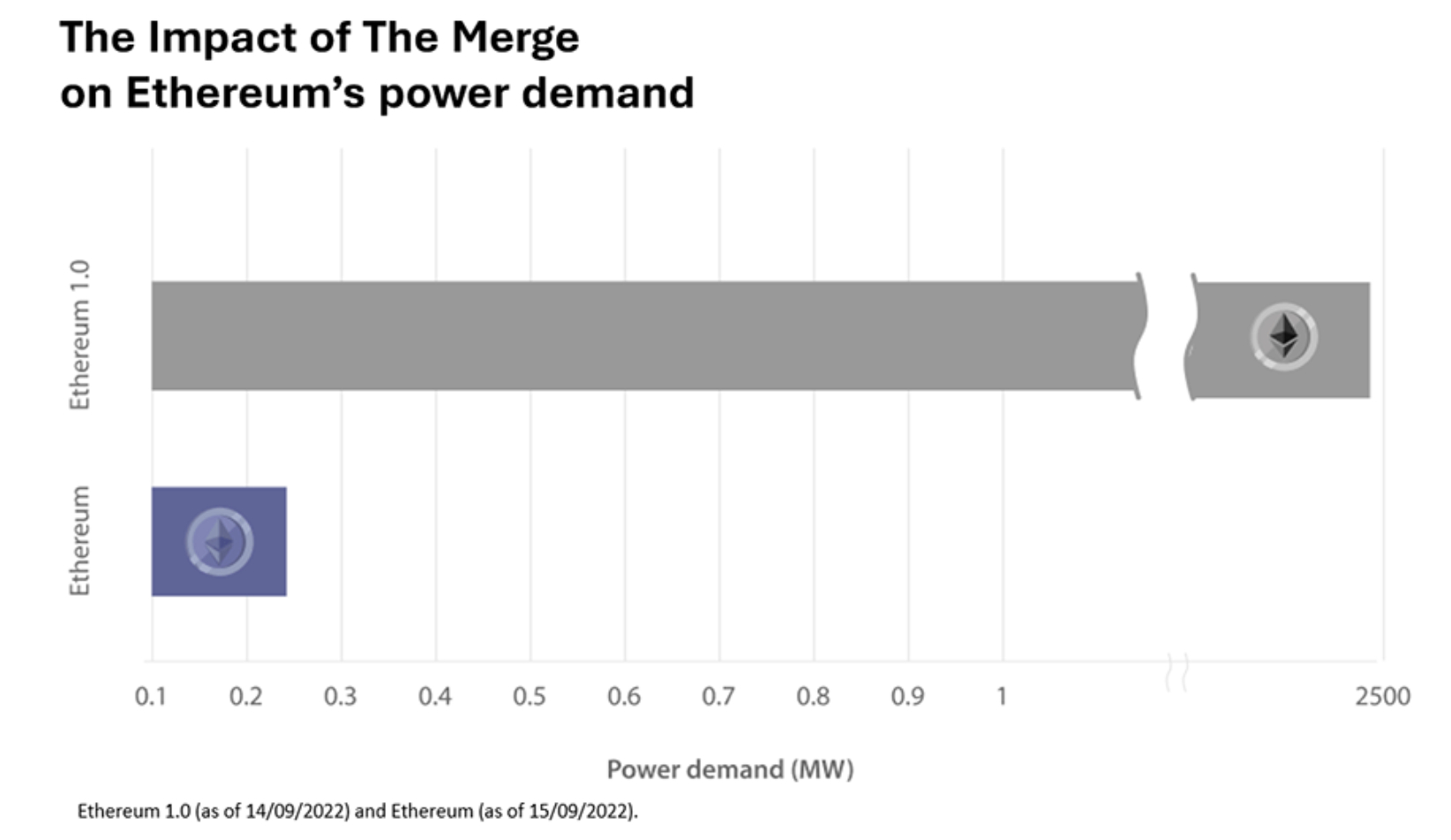A study conducted by Cambridge University’s Centre for Alternative Finance (CCAF) has found that the Ethereum network during its lifespan has used as much energy as Switzerland.
According to the CCAF, the Ethereum network’s energy consumption came in at a total of 58.26 Terawatt hours (TWh) between 2015 and the date of the Merge – the network’s transition from Proof-of-Work to the Proof-of-Stake consensus mechanism – in September 2022.
By comparison, the country of Switzerland’s annual electricity consumption for the same period was 54.88 TWh.
Bitcoin’s energy consumption during the period was 143.9 TWh, according to the CCAF.
The finding was published in a blog post by Alexander Neumüller, one of the researchers who work for the CCAF.

According to Neumüller, the reduction in energy usage for Ethereum as a result of the switch to Proof-of-Stake has been “staggering.”
This stark difference in energy consumption highlights that one of the “core objectives” of the Merge has been achieved, Neumüller wrote
The Ethereum Foundation has in the past claimed that the transition to Proof-of-Stake will cut energy usage by 99.9%, and this is in line with CCAF’s findings, the researcher added in his article.

The same finding was also shared by the CCAF on Twitter, using an illustration that compared the Ethereum network to a raspberry and Bitcoin to Malaysia’s Merdeka 118 skyscraper.
CCAF is best known for estimating the energy consumption of the Bitcoin network, as well as providing data on where Bitcoin mining takes place.
In the past, the center has found that the US has taken over for China as the epicenter of global Bitcoin mining, with the country now responsible for nearly 38% of Bitcoin’s global hashrate.
A study conducted by Cambridge University’s Centre for Alternative Finance (CCAF) has found that the Ethereum network during its lifespan has used as much energy as Switzerland.
According to the CCAF, the Ethereum network’s energy consumption came in at a total of 58.26 Terawatt hours (TWh) between 2015 and the date of the Merge – the network’s transition from Proof-of-Work to the Proof-of-Stake consensus mechanism – in September 2022.
By comparison, the country of Switzerland’s annual electricity consumption for the same period was 54.88 TWh.
Bitcoin’s energy consumption during the period was 143.9 TWh, according to the CCAF.
The finding was published in a blog post by Alexander Neumüller, one of the researchers who work for the CCAF.

According to Neumüller, the reduction in energy usage for Ethereum as a result of the switch to Proof-of-Stake has been “staggering.”
This stark difference in energy consumption highlights that one of the “core objectives” of the Merge has been achieved, Neumüller wrote
The Ethereum Foundation has in the past claimed that the transition to Proof-of-Stake will cut energy usage by 99.9%, and this is in line with CCAF’s findings, the researcher added in his article.

The same finding was also shared by the CCAF on Twitter, using an illustration that compared the Ethereum network to a raspberry and Bitcoin to Malaysia’s Merdeka 118 skyscraper.
CCAF is best known for estimating the energy consumption of the Bitcoin network, as well as providing data on where Bitcoin mining takes place.
In the past, the center has found that the US has taken over for China as the epicenter of global Bitcoin mining, with the country now responsible for nearly 38% of Bitcoin’s global hashrate.
